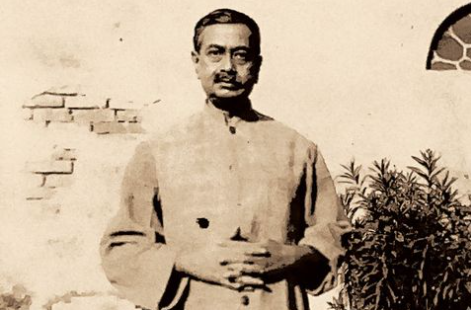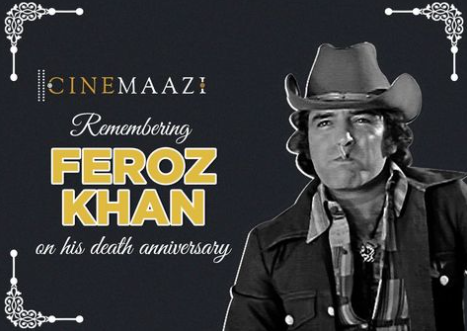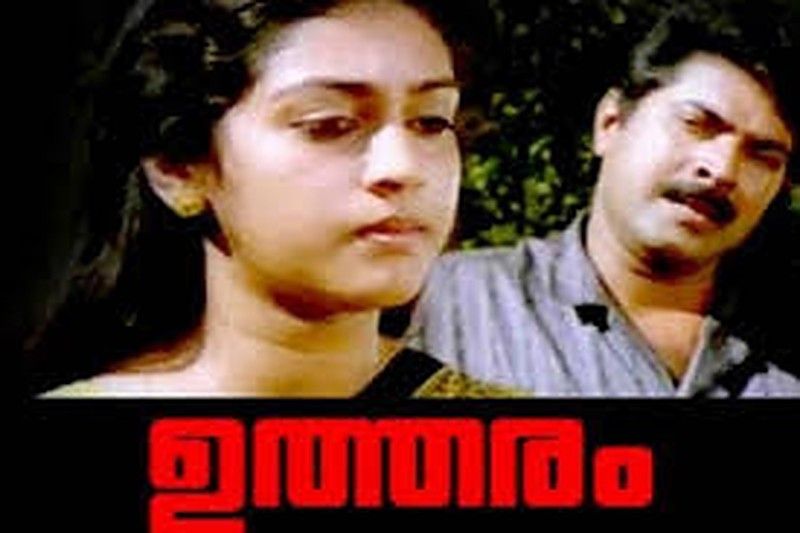Utharam (Answer)
Subscribe to read full article
This section is for paid subscribers only. Our subscription is only $37/- for one full year.
You get unlimited access to all paid section and features on the website with this subscription.
Not ready for a full subscription?
You can access this article for $2, and have it saved to your account for one year.
Utharam (Answer)
Year released: 1989
Directed by: P.K. Pavithran
Starring: Mammootty, Suparna Anand, Sukumaran and Sankaradi
Utharam released in 1989, and is an adaptation of French writer Daphne du Maurier’s short story ‘No Motive’, by well-known Malayalam writer M.T. Vasudevan Nair. At the time it was a major critical and commercial success, showing all signs of a new classic. But today it has faded into obscurity. The reason might be its subject: Selena Joseph, a woman poet.
Few understand poetry and fewer a poet. Few, as Yeats says, are ‘hearteners of the work’; and a poet’s sense of the world might have been too much for regular Malayali appreciation.
According to her husband, Mathew Joseph, Selena was ‘happy’. Joseph was a loving and devoted husband and they had never had never had any quarrels. In one scene Joseph says, ‘Yesterday, we had gone for a drive. She had laughed at the hole in my shirt.’
Why then did Selena Joseph, the most contented woman, shoot herself? Is there something in her past to explain her suicide? Is there something to know in her fascination with the dark, as in one of her poems: ‘Irulveenoru idavazhiyil evidevecharente irukai vilaku valicherinju’? Somewhere on the road, when darkness fell, someone threw the light away from my hands.
‘What about an illness?’ Balu asks. But there is nothing Joseph can recollect. There is no perceivable motive.
Balu, an ex-Times of India journalist, played by Mammootty, is baffled and becomes, as Mammootty is in so many films, a Malayali ‘Sherlock Holmes’ to investigate Selena’s past. He then leads us into the inner world of the most charming woman Malayalam cinema has seen.
In the beginning the film shows signs of a middle-brow family drama. It seems to hate subtlety. The opening scene shows dogs howling, portending something grave. We then see the caretaker, bald except for a few strands of baby hair, the good old man of the house, thinking loudly about the bad omen of the dogs. It’s through his running commentary that we are introduced to the story: after Selena’s death, his pitying of the sulking husband who does not eat; his despairing about Selena’s tragic fate; and his wistful recollection of her virtues. A tacky flashback then shows Balu’s recollection of the happy memories at the dining table. The maid interjects at one point with even more embarrassing goodness: ‘[Selena] wouldn’t even let me clean the gun; it’s too dangerous she would say.’
In one scene, at a lake, she tells her friend that no boating should be allowed on it. ‘Let the clouds see themselves in the stillness.’ In another, Balu recollects her taunt in a poem: ‘Whatever that makes the machine gun – can you make a flower?’
As Balu probes further, we find even more about Selena’s poetic innocence, and its potential for tragedy – especially when he finds out the darkness Selena meditated on in her poems. We then know why Selena did not write about her childhood, the only poet to do so; about the ‘light’ that was thrown from her hands; and why she had been so happy.
Utharam is a hair-raising depiction of our precarious world of experience, where so many strange, ordinary things are constantly inspiring us to the miraculous. You pick up the coin you dropped and the bird dropping has missed you. The notorious goon in Pulp Fiction Jules Winnfield nearly misses a bullet and that turns him Christian. The asshole at work who savages you in a meeting, you realize, is only your colleague, not an important diplomat of international peace.
But the surreal that raises our thoughts to heaven can also dash them down against the hard rock of bare reality, which is the place of grief, guilt and shame – which, as Utharam shows, is where Selena Joseph the poet lost her life.
Tags
About the Author

Joseph Antony is an editor in publishing. He writes on cinema, books, football and culture. You can reach him at 8.josephantony@gmail.com.







.jpg)


